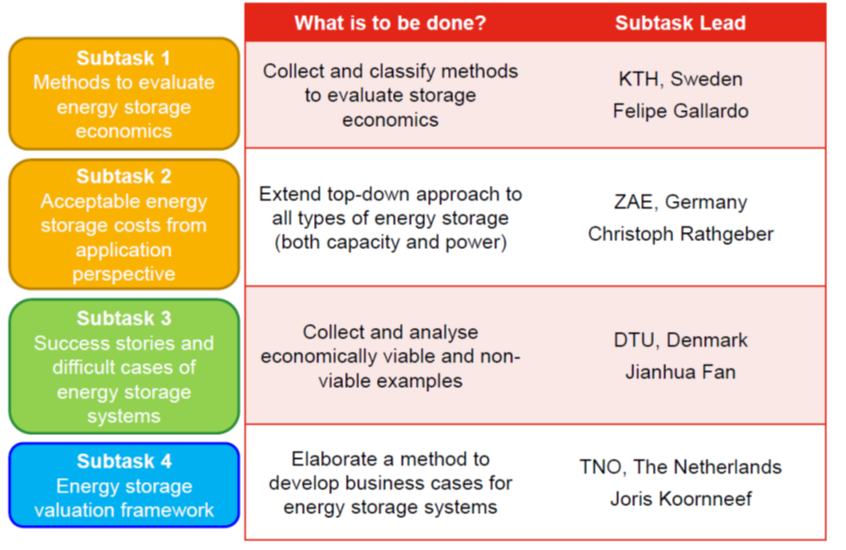Participation in IEA ES TCP Task 41 on Economics of Energy Storage
Contact person: Jianhua Fan, Edoardo Callegari
Project start: 15.10.2022
Project end: 14.10.2025
Task website: https://iea-es.org/task-41/
Energy storage is a valuable solution for various applications, as it enables the coupling of different energy sectors and facilitates the shifting of energy demand to periods when low-cost solar and wind power is available.
The primary goal of Task 41 on Economics of Energy Storage is to assess the economic efficiency of energy storage systems through scientific methods based on theoretical foundations. DTU Construct, PlanEnergi and Aalborg CSP will work jointly, and the task will examine how various energy storage technologies can mitigate the challenges associated with a high penetration of renewable energy. Several parameters that are recognized by the Danish Energy Agency as key parameters to reduce the consumption of fossil fuels in the Danish energy sector are going to be considered and analysed.
Evaluations of energy storage in different applications out and an identification of difficult cases in which existing benefits of energy storage solutions cannot be transferred into possible business case will be considered. Also, methods to evaluate the economic viability of energy storage systems for specific applications will be collected, key performance indicators (KPIs) to evaluate the economics of energy storage will be defined and a comparison of energy storage configurations to solutions with other flexibility measures and to systems without energy storage will be done.
DTU Construct will carry out state of the art review of different heat storage technologies, considering different technologies such as latent heat storage and large-scale heat storage. The focus of the investigations is on economic analysis, especially evaluation methods, KPIs.
PlanEnergi will provide the task with knowledge on large scale heat storage systems and investigate value of system integration and peak shaving while Aalborg CSP will contribute to the development of KPIs and maximum acceptable cost considering various technologies.
If the project is implemented successfully, it will provide a framework for the development of business cases for energy storage to be used in order to consider different storage solutions for various scenarios in an effective way.
